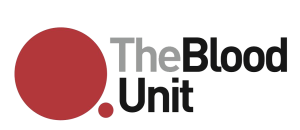Iron Deficiency Investigation, Treatment and Management
Low iron, or iron deficiency is a common disorder in haematology. Iron is obtained from our diet, and is best absorbed from red meat, although small amounts of iron are found in pink meat such as chicken thigh, and pork. There are small amounts of iron in other foods. Diets that are low in iron, such as a vegetarian diet, are often associated with iron deficiency. Iron is absorbed from the body through the small intestine. Disorders affecting the small intestine such as coeliac disease or inflammatory bowel disease can be associated with low iron because the intestine cannot absorb enough iron. Iron can also be low due to blood loss. Common sites of blood loss include the gut, the urinary system or the female reproductive tract.
Iron deficiency is usually evaluated by a careful assessment of your diet, then some blood tests. It can be important to rule out sites of blood loss or poor iron absorption, and sometimes your doctor will refer you for tests of your gastrointestinal system to answer this question.
Iron deficiency is treated by finding and stopping any bleeding if this is present, and improving the dietary intake of iron. Treating any underlying bowel inflammation (if present), and treating gynaecological conditions (if present) will also help with iron deficiency.
Sometimes an iron infusion (hyperlink to patient information sheet on iron infusion) is necessary to quickly improve iron levels. This can be done in our Day Oncology Ward at Cabrini, so it is a good idea to check with your health insurance if your cover includes this treatment and for any out of pocket costs. Iron infusion is generally quick and very well tolerated when modern preparations of iron are used.
Very rarely, iron deficiency requires a blood transfusion (hyperlink to blood transfusion below) to correct iron deficiency where anaemia has resulted as well. Your doctor will discuss this with you if this is thought to be necessary.

